Whether you’re familiar with the original game or new to the series we’ve got all the information you need in our Dragon’s Dogma II: All Vocations (Classes) breakdown.
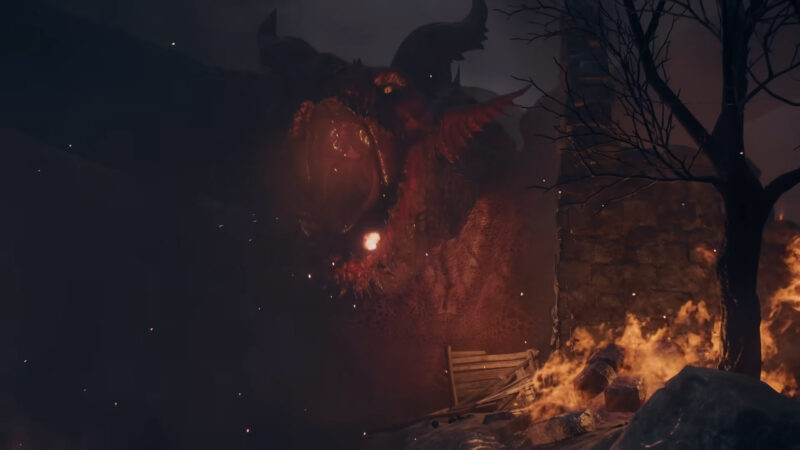
Dragon’s Dogma II: All Vocations (Classes)
In the Dragon’s Dogma series, traditional RPG classes are called Vocations. They are divided into three categories: Starting, Advanced, and Hybrid. The developers of Dragon’s Dogma II have confirmed ten available Vocations. However, some vocations from the first game are not included, while completely new hybrid vocations called the Trickster and Warfarer will debut. We don’t know if all the old vocations or additional new ones will appear in the final game. We will update this guide with any additional vocations as soon as they have been confirmed by the developers for Dragon’s Dogma II.
The Vocation you select for your Arisen or Pawns determines the Weapons and Skills available to them. Additionally, it dictates the way their stats improve with each level up. As the Arisen, you can choose from all available Vocations, while Pawns have a more limited selection.
Dragon’s Dogma II will be released on March 22, 2024, on multiple platforms, including PlayStation 5, Xbox Series X\S, and PC.
Dragon’s Dogma II: Starting Vocations
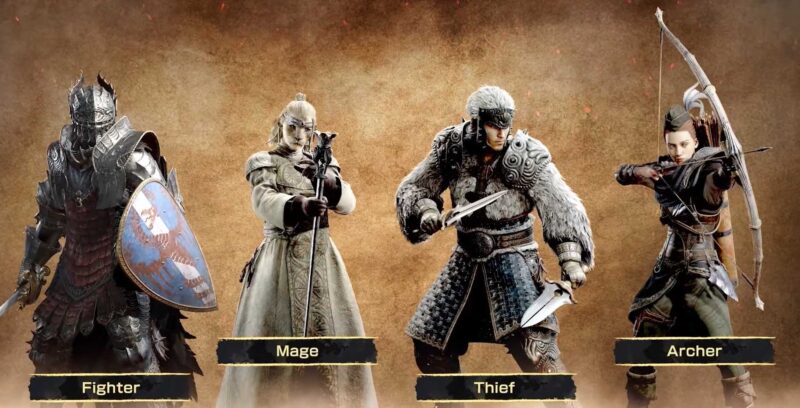
There are four known Starting Vocations in Dragon’s Dogma II are Fighter, Mage, Thief and Archer. You can choose from any of these vocations for your Arisen character. Additionally, you can also assign them to your Pawns.
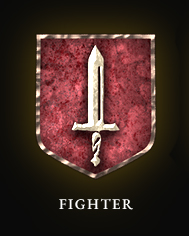
Fighter
Your standard starting class, a Fighter, wields a one-handed sword and shield. This vocation lends itself to defense rather than dealing massive damage, making the playstyle more of a front-line tank. They not only defend themselves but also their allies. Placing themselves in the heat of battle and drawing enemy attack.
As the Fighter levels up, they can enhance Shield skills, offering you and your allies increased protection. Moreover, based what was available in the first game, there are likely to also be skills which taunt enemies. Other available skills could enhance your damage-dealing abilities, turning a high-leveled Fighter into a formidable force on the battlefield.
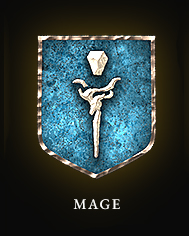
Mage
A ranged class which can wield magick offensively, defensively or in support of the entire party. In the first Dragon’s Dogma, only Vocations using a staff had access to a single healing spell. This made Mages an incredibly valuable addition to any party, and as a starting vocation it is also available to Pawns. It remains to be seen if the sequel imposes a similar limitation that makes Mages equally desired.
While Mages can be weak against melee enemies, if they can successfully keep their distance, their offensive spells can pack a powerful punch. The flexibility between support and damage roles makes this starting vocation potentially more complex to master.
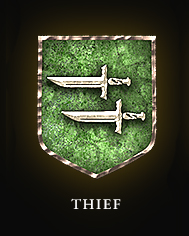
Thief
This vocation primarily focuses on delivering quick bursts of melee damage to enemies. Thieves do not have the defensive capabilities of the Fighter, and will need to be careful that they don’t get caught in the middle of a group of enemies. Unfortunately, in the previous game they also lacked any area-of-effect attacks, as well. However, they excelled against Bosses or other durable solo enemies.
As a Thief you are highly mobile and strike quickly many times, rather than deal a single powerful blow. A Thief’s damage done per strike will typically drop with each successive hit, but this is balanced by the sheer number of times they can do so. As a Thief levels up they can improve not just their damage, but also their mobility. Enabling them to nimbly dodge attacks and also giving them an easier time climbing up onto of a large creatures in order to deal critical blows.
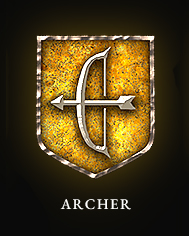
Archer
Archers attack their enemies by dealing physical damage at range. They don’t have great defense and are therefore more nimble. Moving swiftly across the battlefield to stay out of attack range and to better position themselves to strike. Similar to the Thief vocation, Archers typically do not deal single, powerful blows. Rather, they rely on their quickness and skill to fire multiple arrows in a row.
As you level your Archer, they gain access to skills which allow you to shoot arrows more quickly, or even to fire multiple arrows at once. Other skills will improve your mobility, allowing you to disengage and put some extra distance between you and any attacking enemies.
Advanced Vocations
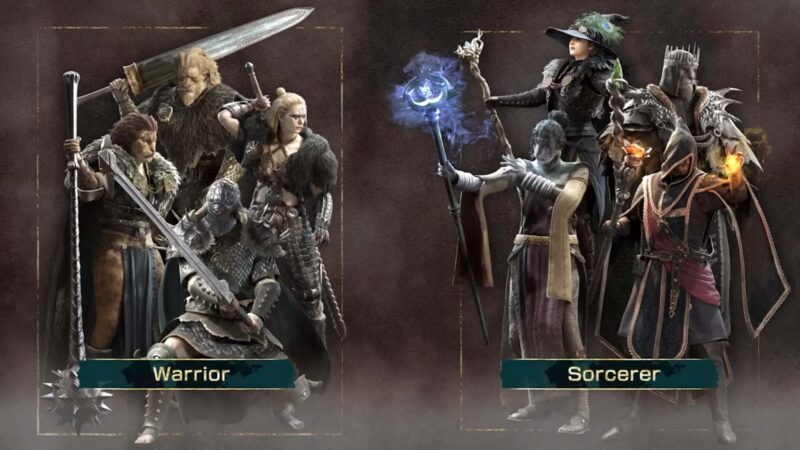
There are two known Advanced Vocations in Dragon’s Dogma II: Warrior and Sorcerer. You can choose from any of these vocations for your Arisen character. Additionally, you can also assign them to your Pawns.
In Dragon’s Dogma 2, the you will unlock the Advanced Vocations through a quest, rather than by reaching a particular level. It’s unknown exactly when in the game this will occur, but at some point you will be able to visit a Vocation Guild. Here you will be able to pick up a quest to acquire the necessary weapon type for a particular vocation. A greatsword or hammer for Warrior, or an archistaff for the Sorcerer. In fact, you can accept both quests and return with each in order to unlock both Vocations.
Here is a breakdown of these Vocations (Classes) in Dragon’s Dogma II.
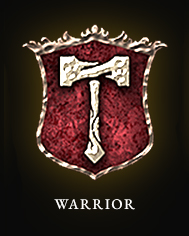
Warrior
The Warrior vocation has no need of the Fighter’s shield, relying on their heavy armour and robust constitutions to carry them through combat. While they are not as reliably tanky as Fighers, Warriors make up for this through a massive increase in damage. Warriors specialize in fighting with two-handed weapons such as the greatsword and hammer. They can charge up their attacks, landing powerful single blows.
As a Warrior you will also be able to level up unique skills, which allow you to attack multiple enemies with a single swing of your weapon. Additionally, in the original game Warriors could also provide crowd control, by hitting enemies with stunning blows.
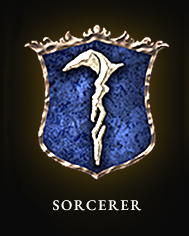
Sorcerer
Choosing the Sorcerer vocation will take your magick-wielding abilities to the next level. Sorcerers specialize in ranged magick attacks and use both hands to channel their arcane energy through large staves. They will have access to spells that can deal area-of-effect damage, making them overall more potent than their Mage counterparts. However, the cost of this power is that it takes longer to charge and cast such spells.
As a spellcaster, you still have lower defense and will be vulnerable to attack. Positioning will be critical. You will want to ensure your Sorcerer is out of range, away from enemies. Getting hit while channeling your spell can interrupt the cast, and you’ll have to seek safety and start over. The Sorcerer is a challenging vocation, but can be devastating on the battlefield once you’ve mastered it.
Hybrid Vocations

There are four known Hybrid Vocations in Dragon’s Dogma II: Magick Archer, Mystic Spearhand, Trickster and Warfarer. All three of these vocations are available to your Arisen character only. You cannot choose them for any of the Pawns who follow you.
We don’t yet know exactly how Hybrid vocations will unlock in Dragon’s Dogma 2. In the original game, Hybrid Vocations became available to players upon reaching Level 10. However, since the sequel is changing the Advanced vocations to require the completion of a quest, it’s likely that the method for unlocking Hybrid vocations has changed too.
It seems possible that the new Maister characters such as the Trickster Luz and the Mystic Spearhand Sigurd might be NPCs who can teach you these vocations. Completing a quest for them, or training with them, could be how you unlock the Hybrid vocations.
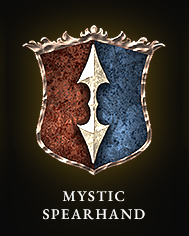
Mystic Spearhand
The Mystic Spearhand is a brand new Hybrid vocation for Dragon’s Dogma II, though it resembles the original game’s Mystic Knight. This vocation specializes in both melee and magick. This means that you will have the ability to attack at close and long range. As a Mystic Spearhand, you will fight and do physical damage with your specialized weapon called the Duospear. This weapon is unique to this vocation, enabling you to attack multiple enemies simultaneously with the deadly points that cap both ends.
Some of their magick spells also promise to give them crowd control abilities. As a Mystic Spearhand, you can also paralyze your enemies or throw the bodies of defeated foes directly at other attackers.
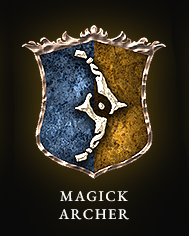
Magick Archer
While this might sound like a similar blend of melee and magick that the Mystic Spearhand uses, the Magick Archer is actually more specialized. Your attacks with this class will be done with pure magick. Even the arrows themselves will be magick in nature. This class will primarily engage in long-range combat, utilizing magickal arrows for shooting and casting spells.
A Magick Archer’s arrows are far superior to their physical counterparts, as they always hit their intended target. Moreover, you can specifically choose the elemental nature of your arrows. Thereby enabling you to target enemies based on their specific weaknesses.
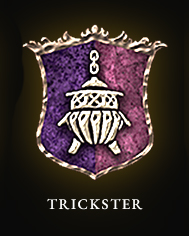
Trickster
The Trickster is another brand new Hybrid vocation, which specializes in conjuring illusions through the smoke created by their unique weapon, the Censer. The illusions created by a Trickster can cause a group of enemies to attack each other or be used as a taunt to draw their attack. Additionally, you can use the smoke to create a spectral clone which can draw the focus of attackers. Another ability allows you to create false areas of ground off of cliffs or walls you can see through but an enemy can’t. Overall, this class appears to provide you with the tools to master the surrounding environment so that your party can attack from their strongest vantage point.
Additionally, as a Trickster, you will also have the ability to temporarily increase the power of your Pawns beyond their normal limits. While we don’t know more specifics, it’s likely that the Trickster will have other specialized buffs available to use, as well. Based on all of this information so far, it seems reasonable to suggest that the Trickster would be a great choice if you are looking for a class that has more of a support role.
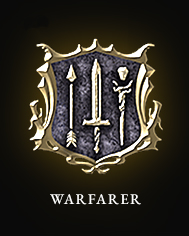
Warfarer
The Warfarer is another new vocation coming in Dragon’s Dogma 2. With this class, you can choose to use any combination of three weapons in the game. Essentially, your choice of weapons allows you to switch between any three different vocations you choose. As a Warfarer you will be able to choose skills from each of your chosen weapons/vocations.
The Warfarer looks to be an incredibly fun and versatile vocation. It will allow you to adapt your playstyle in real time, as you respond to different enemy types, enemy weaknesses, and environments. However, because Warfarers have access to so many skills, they will likely not be able to level skills as high as a single, focused vocation. Players who choose the Warfarer vocation will need to be skilled with their chosen weapon types, and able to quickly analyze combat situations to make the most of this potentially powerful class.
Looking For More?
Thank you for reading the Dragon’s Dogma II: All Vocations (Classes) guide. We provide the latest news and create guides for Baldur’s Gate 3, Ark: Survival Ascended, Starfield, and more. Also, watch me play games on Twitch or visit my YouTube channel!
 Reddit
Reddit
 Email
Email


